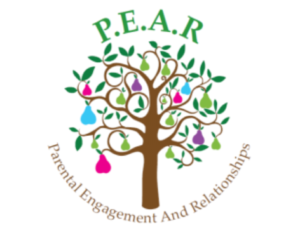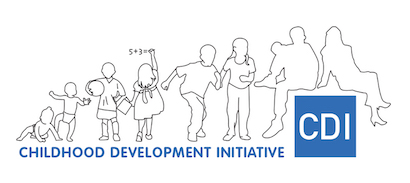
The Childhood Development Initiative (CDI) is delighted to have secured the prestigious Marie Sklodowska – Curie Actions (MSCA) grant enabling us to undertake state of the art research on Parental Engagement and Relationships in Early Childhood (PEAR) starting in May 2020 to conclude in April 2022.
Parental support and engagement in early years can have a powerful positive impact on children’s learning and development, and reduction of poverty effects1. CDI’s existing evidence-informed model supports parents and carers by placing a dedicated parent/carer facilitator (PCF) within Early Learning and Care (ELC) services. Our work with parents includes identifying needs, offering support through different modalities (e.g. one-to-one; group-based; parent education courses), and coordinating with relevant education, health and social services. Accessible to all parents, the model targets families experiencing poverty or social exclusion, and fathers/co-parents.
PEAR aims to contribute to the development of effective policy and practice on parental support in order to improve children’s outcomes. We will share practice and learn from the existing evidence based CDI parental support model. PEAR will generate research based and contextualised recommendations on parental support provision by:
- Learning from a review of existing policy and promising practice for supporting parents and families with children under six in Ireland and Europe;
- Evaluating the impact of the CDI parent support model at three levels:
- ELC service/parent relationship;
- Parental engagement by examining the Home Learning Environment and parental stress;
- Children’s school readiness;
- Learning from promising practice on engaging fathers/co-parents in parental support provisions, and evaluating their participation in the CDI model.
This research project will make a timely contribution to quality Early Childhood Education and Care research and current policy-practice gaps, particularly in Ireland, where clear commitments to Parental Support are contained in the new whole-of-government 10-year strategy First 5, including ELC services becoming ‘a delivery mechanism’ for Parental Support2. Furthermore it complements the agenda and priorities of the Better Outcomes Brighter Futures framework in relation to children and young people which recognises that ‘Effective parenting supports should encourage positive parenting and discipline approaches. Programmes and interventions used should be proven to increase parenting skills, confidence and capacity; reduce parental stress; improve child wellbeing and behaviour; and increase the enjoyment of, and satisfaction in, parenting’. 2
The researcher Dr. Catarina Leitão will carry out a fellowship to study this model under the intersectoral supervision of Marian Quinn, CDI’s Chief Executive Officer (CEO) and Professor Nóirín Hayes of Trinity College Dublin (TCD).
Throughout the project, we will:
- Share our findings and incorporate your feedback;
- Share our reports and presentations;
- Inform you of opportunities for collaboration and networking with PEAR stakeholders at national and European level.
This project is a crucial opportunity to highlight the importance of parental engagement in early years services, and to inform the development of a national model of parenting support. We will host an information session about this research this summer. This will be an opportunity to learn more about PEAR, meet the researcher and the team, and provide valuable input in the context of your knowledge and services.
Please visit our website www.cdi.ie, and follow us on Twitter (twitter.com/twcdi), Instagram (instagram.com/childhooddevelopmentinitiative) and Facebook (facebook.com/ChildhoodDevelopmentInitiative). We will keep all relevant stakeholders and interested parties fully informed as this project develops and we invite you to provide input so that we address queries, needs and expectations. We aim to reach as many interested parties as possible; therefore, any suggestions regarding additional stakeholders within Ireland and the EU that should be contacted about this exciting initaive would be deeply valued.
Should you require any further information please contact catarina@cdi.ie.
![]() This project has received funding from the European Union’s Horizon 2020 research and innovation programme under the Marie Skłodowska-Curie grant agreement No 890925.
This project has received funding from the European Union’s Horizon 2020 research and innovation programme under the Marie Skłodowska-Curie grant agreement No 890925.
1.Hayakawa, C. M., & Reynolds, A. J. (2014). Key elements and strategies of effective early childhood education programs: Lessons from the field. In Handbook of Child Well-Being (pp. 2993-3023). Springer Netherlands.
2.Government of Ireland (2018). First 5: Implementation Plan 2019–2021. Government of Ireland.
3.Department of Children and Youth Affairs. Better outcomes, brighter futures: the national policy framework for children & young people 2014 – 2020. Dublin: Stationery Office; 2014.





